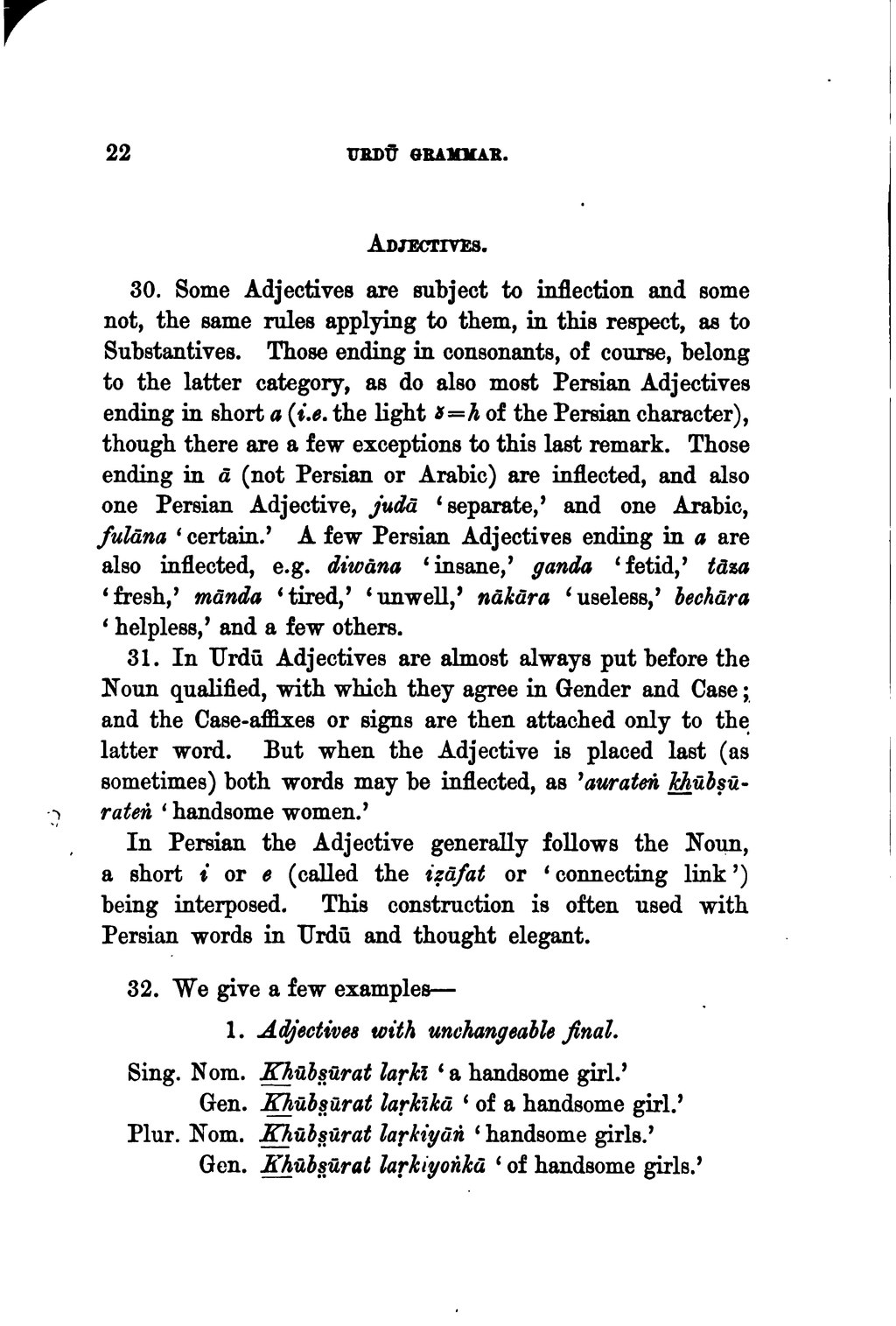Adjectives.
30. Some Adjectives are subject to inflection and some not, the same rules applying to them, in this respect, as to Substantives. Those ending in consonants, of course, belong to the latter category, as do also most Persian Adjectives ending in short a (i.e. the light ४=h of the Persian character), though there are a few exceptions to this last remark. Those ending in a (not Persian or Arabic) are inflected, and also one Persian Adjective, judā 'separate,' and one Arabic, fulāna 'certain.' A few Persian Adjectives ending in a are also inflected, e.g. diwāna 'insane,' ganda 'fetid,' tāza 'fresh,' mānda 'tired,' 'unwell,' nākāura 'useless,' bechāra 'helpless,' and a few others.
31. In Urdū Adjectives are almost always put before the Noun qualified, with which they agree in Gender and Case; and the Case-affixes or signs are then attached only to the latter word. But when the Adjective is placed last (as sometimes) both words may be inflected, as 'aurateṅ khubsu-rateṅ 'handsome women.'
In Persian the Adjective generally follows the Noun, a short i or e (called the iẓāfator 'connecting link') being interposed. This construction is often used with Persian words in Urdu and thought elegant.
32. We give a few examples—
1. Adjectives with unchangeable final.
Sing. Nom. Khūbs͏̤ūirat laṛrkī 'a handsome girl.'
Sing. Gen. Khūbs͏̤ūirat laṛkīkā 'of a handsome girl.'
Plur. Nom. Khūbs͏̤ūirat laṛrkiyāṅ 'handsome girls.'
Plural Gen. Khūbs͏̤ūirat laṛrkiyoṅkā' of handsome girls.'

